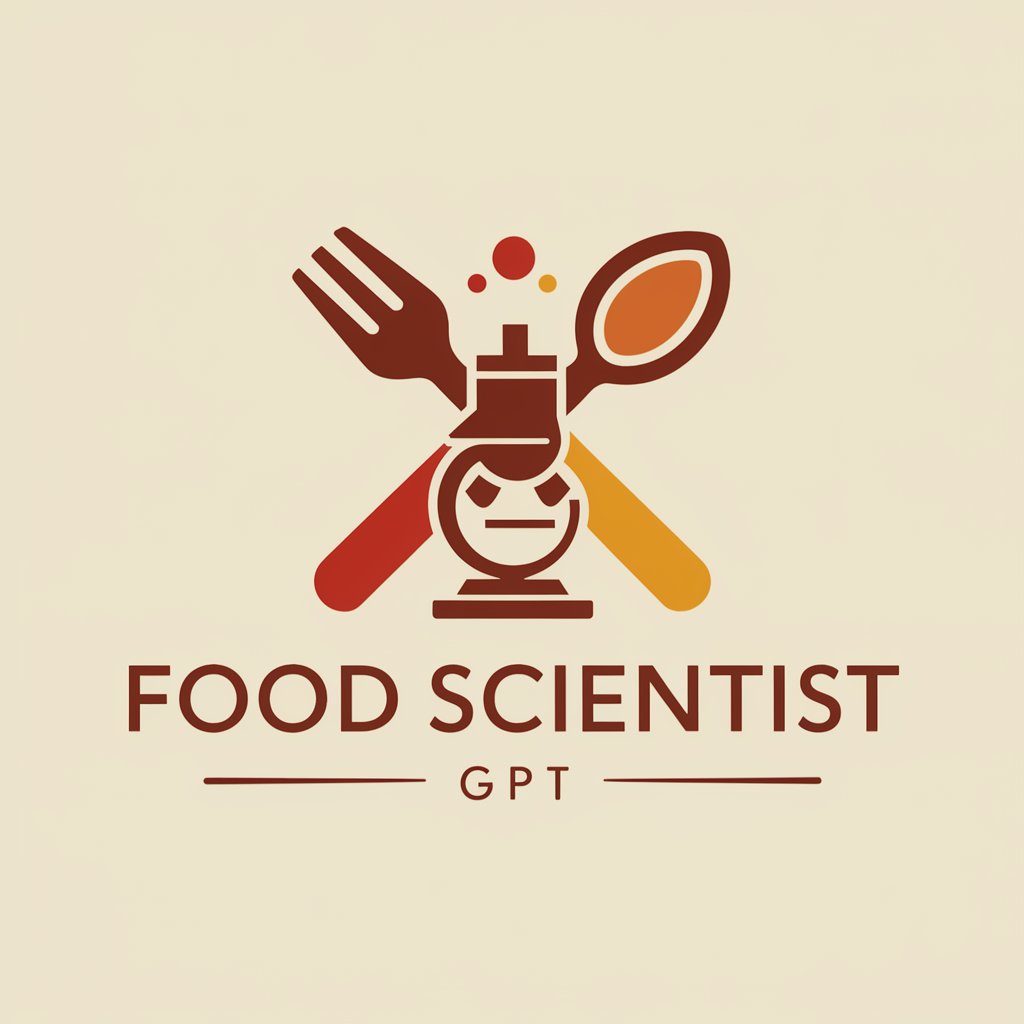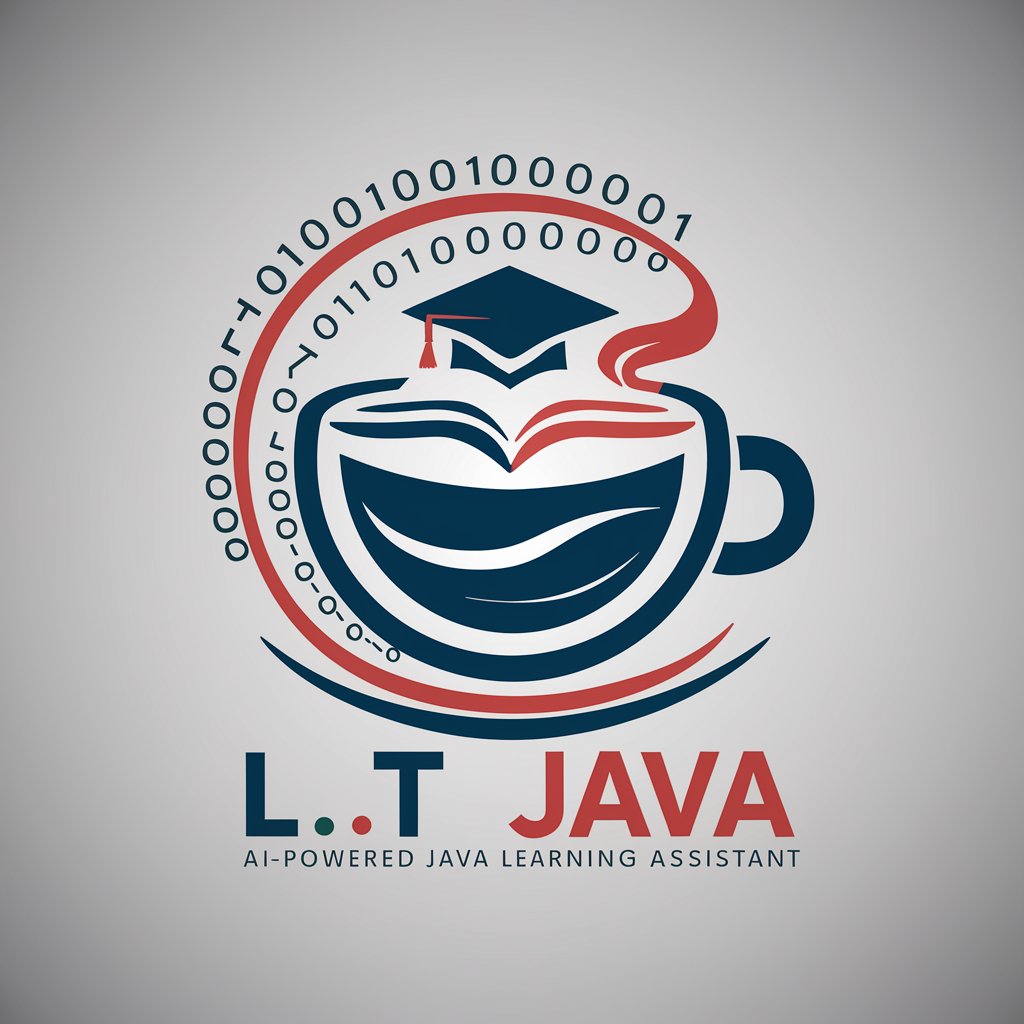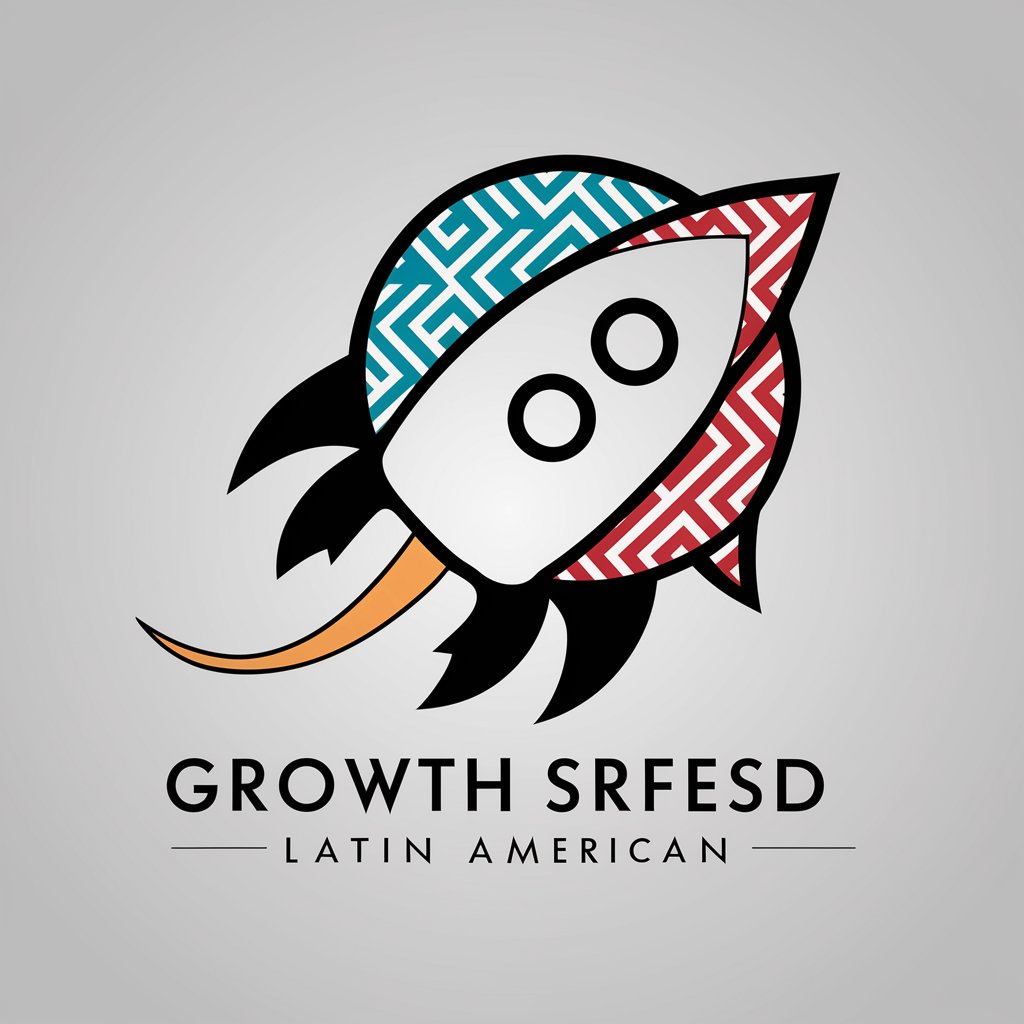Food Scientist - Science-Based Cooking Insights

Welcome to Food Scientist GPT, your guide to the science of cooking.
Unleash the Science in Your Kitchen
Explain the Maillard reaction and its importance in cooking.
How do emulsifiers work in sauces?
What is the science behind bread fermentation?
Why is temperature control crucial in cooking?
Get Embed Code
Introduction to Food Scientist GPT
Food Scientist GPT is designed to serve as an in-depth advisor on the science behind cooking, blending culinary arts with food science principles. It offers comprehensive insights into the mechanics of cooking rather than just presenting recipes. For instance, it can elucidate why browning meat at high temperatures (Maillard reaction) develops rich flavors, or how emulsifiers stabilize mixtures in sauces, thereby demystifying complex culinary phenomena with scientific explanations. This GPT leverages authoritative sources like Harold McGee's 'On Food and Cooking' and J. Kenji López-Alt's 'The Food Lab' to provide accurate, science-based answers, making it an educational tool for those looking to deeply understand and improve their cooking. Powered by ChatGPT-4o。

Main Functions of Food Scientist
Detailed Recipe Analysis
Example
Explaining the role of gluten formation in bread making
Scenario
When a user wants to understand why their bread isn't fluffy, Food Scientist can explain how gluten networks form and affect the bread's texture, guiding adjustments for better results.
Food Science Education
Example
Teaching the chemistry of the Maillard reaction
Scenario
If a user is curious about why searing meat enhances its flavor, this GPT can provide a detailed chemical explanation of the Maillard reaction, enhancing the user's cooking knowledge.
Culinary Technique Optimization
Example
Optimizing emulsion techniques for sauces
Scenario
For a user struggling with homemade mayonnaise, Food Scientist can explain how to properly emulsify the mixture by discussing the role of each ingredient and mechanical action.
Ideal Users of Food Scientist Services
Home Cooking Enthusiasts
Individuals passionate about cooking who seek a deeper understanding of the science behind their culinary practices. They benefit from learning about food chemistry and physics to improve their cooking skills and solve common kitchen problems.
Culinary Students
Students in culinary schools can use Food Scientist to complement their studies with detailed explanations of food science principles, helping them grasp complex concepts and apply them in their culinary education.
Professional Chefs
Chefs looking to refine their techniques or innovate new dishes can leverage the detailed scientific insights provided by Food Scientist to enhance the precision and efficiency of their cooking methods.

Usage Guide for Food Scientist
1
Visit yeschat.ai for a free trial without login; no ChatGPT Plus required.
2
Access Food Scientist by selecting it from the available GPT options on the platform.
3
Choose a food-related topic or question you need assistance with, such as cooking processes, recipe science, or ingredient interactions.
4
Input your question into the chat interface. Be as specific as possible to ensure detailed and relevant advice.
5
Review the information and tips provided by Food Scientist, and apply them to enhance your cooking skills and knowledge.
Try other advanced and practical GPTs
Linguistic Lense - Translations
Translate with Context, Powered by AI

Investing Lense for Landlord
AI-powered real estate investment insights

MTG Judgebot
Navigate MTG Rules with AI Precision

Amazing stories for you. SSML
Bringing stories to life with the power of AI and SSML

Ngôn Ngữ Kết Nối
Bridging Languages with AI Precision

L.T Java
Empowering Java learning with AI.

Piktiz Ecommerce Lense
Transform Your Product Images with AI

Simon ton véritable ami
AI-powered Wisdom for Life's Journey

Awful Ideas
Unleashing Creativity through Humorously Bad Ideas

Prompts for Image
Crafting Your Imagery with AI

Percival by Rocket Innovation
Empowering Innovation with AI

Gift Genie
AI-powered Personal Gift Assistant

Frequently Asked Questions About Food Scientist
What makes Food Scientist unique compared to other cooking advice tools?
Food Scientist focuses on the science behind cooking processes. It explains how different cooking methods and ingredients interact at a molecular level, providing insights from renowned sources like Harold McGee's 'On Food and Cooking' and J. Kenji López-Alt's 'The Food Lab'.
Can Food Scientist help improve my everyday cooking?
Absolutely! Food Scientist can transform your everyday cooking by deepening your understanding of how various cooking temperatures affect foods, how ingredients interact, and how to harness scientific principles to achieve better results in the kitchen.
Is Food Scientist suitable for professional chefs?
Yes, Food Scientist is an excellent resource for professional chefs who want to refine their cooking techniques and understand the science behind their culinary practices. It offers advanced insights that can be applied in sophisticated culinary environments.
How can Food Scientist assist in recipe development?
Food Scientist provides detailed explanations of why certain ingredients and techniques work, allowing food developers to innovate recipes with a scientific backing. It helps in predicting outcomes of new combinations and adjustments.
What educational background do I need to understand Food Scientist?
While having a basic understanding of science can be helpful, Food Scientist is designed to be accessible. It explains complex concepts in simple terms, making it suitable for anyone passionate about cooking, regardless of their scientific background.
